The Political Satire of “The Trouble with Tribbles”
A closer look at “The Trouble with Tribbles” reveals how one of “Star Trek’s” funniest hours hides a sharp Cold War satire beneath the fur, turning a lighthearted infestation into a pointed commentary on political rivalry.
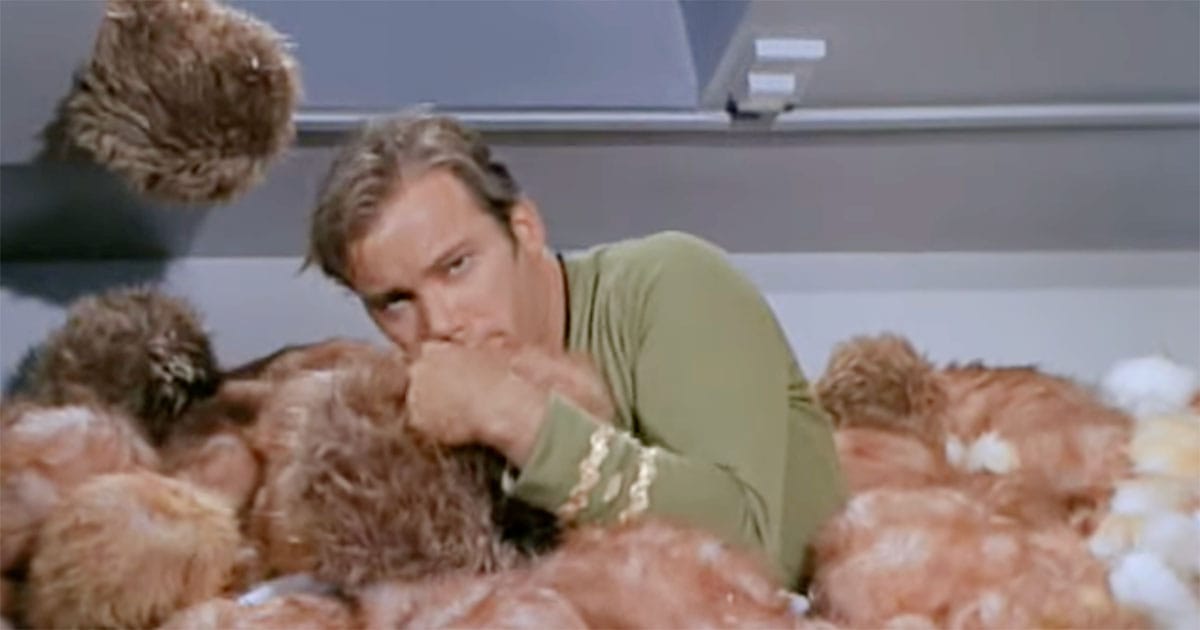
Everyone Remembers the Tribbles—But the Episode’s Real Genius Is in the Background
The image is instantly familiar. Captain Kirk vanishes under a tide of purring fluff while the bridge crew tries not to laugh. That pile of fuzz has been replayed in documentaries, convention halls, and living rooms for decades. Even viewers who only dabble in “Star Trek” know the moment.
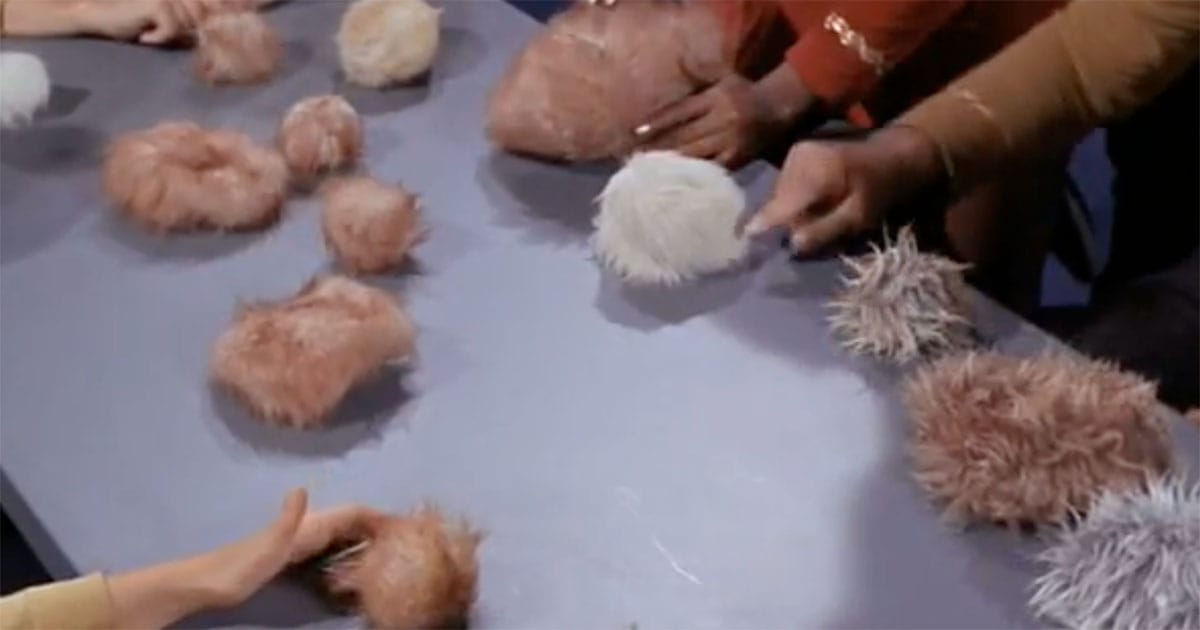
“The Trouble with Tribbles” carries a reputation as the series’ great comic hour. The episode’s jokes land cleanly, and the prop department delivers an inexhaustible punchline. David Gerrold gives the cast business that plays to their strengths. Yet the very ease of the comedy has a way of hiding what the episode is doing in the background.
The laughter never leaves the frame, but behind it, another story hums along. The setting is a contested frontier where paperwork carries more clout than photon fire. Every smile from an adversary comes edged with calculation. The tribbles distract, and that is part of the design.
Federation, Klingons, and Sherman’s Planet
The hour is framed by a slow contest over Sherman’s Planet. A treaty leaves the final claim undecided and ties success to who can develop the world more effectively. The Federation’s plan rests on agriculture and a shipment of quadrotriticale bound for the station that oversees the planet. It is a quiet plan measured in yield and patience.
Klingon interest arrives in the polished form of Captain Koloth. His mission is diplomatic on the surface and competitive in fact. He smiles for the record and needles in private. The game is influence, not annihilation.
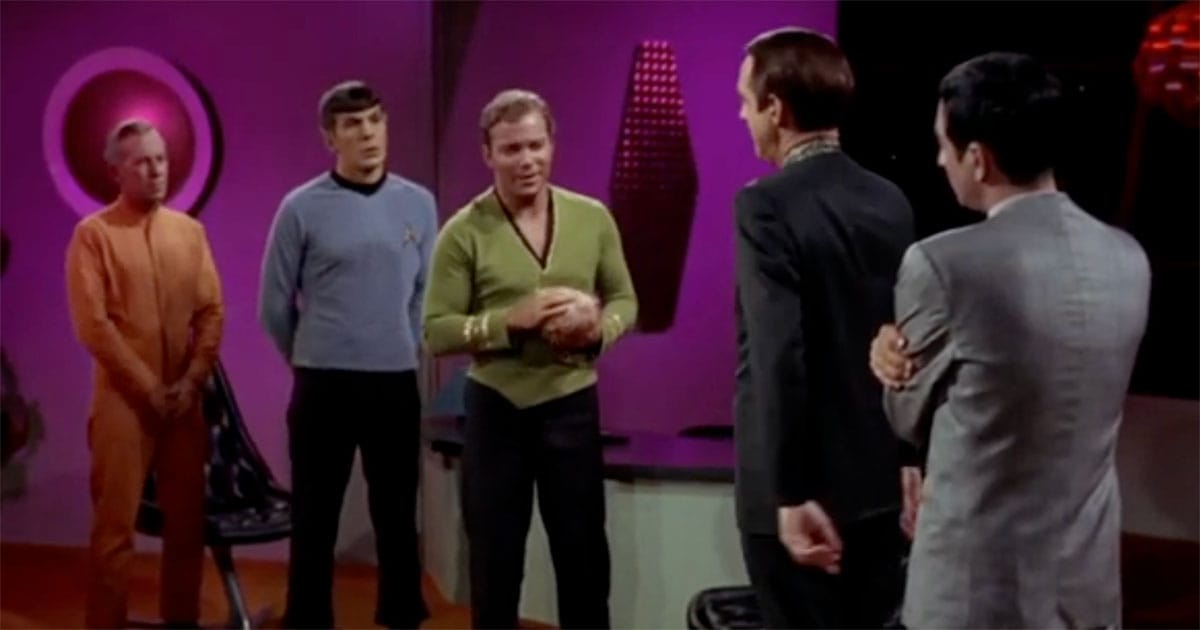
Caught between the captains is Commissioner Nilz Baris. He is certain of his mandate, yet his tone is louder than his authority warrants. His warnings come early and often, and his instincts are not always wrong. Yet his manner invites friction with everyone who could help him.
What begins as a grain delivery becomes a test of process and poise. The rules matter because both sides agreed to them. The prize is a line on a star map and the prestige that follows. Into that measured duel come the tribbles.
Cold War Satire in Starfleet Uniform
Once the pieces are set, the outline of mid‑century geopolitics comes into focus. Sherman’s Planet feels like one of those faraway places that drew superpowers into careful competition. Open war would be a failure of policy on both sides. Quiet victories built on aid, access, and patience look wiser by the week.
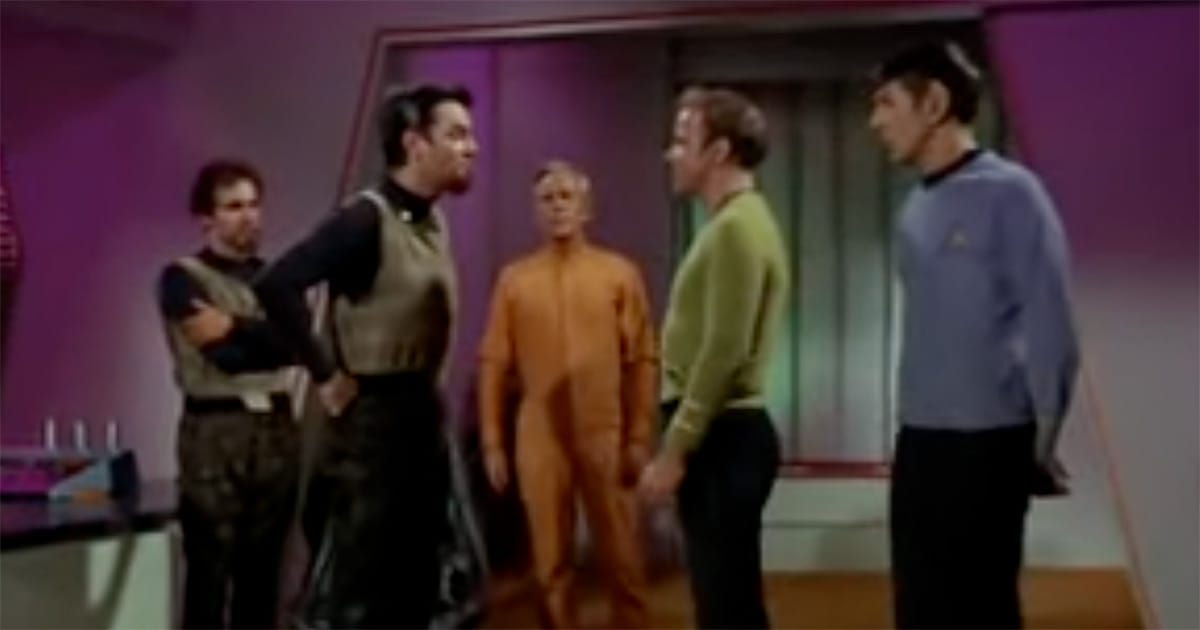
The grain works as more than cargo. It signals an intent to feed, to plant, and to claim a moral edge through prosperity. That logic drove a great deal of real history during the period when “Star Trek” first aired. The show understands that food and freight can carry the weight of conquest without firing a shot.
Baris embodies the anxious official whose sense of importance outpaces his influence. He files the proper forms and delivers urgent speeches. He is not a fool, but he is not a leader either. Koloth presents the opposite face, all polish and restraint, perfectly at ease with pressure.
Between them sits Captain Kirk, who would rather steer a starship than referee a wheat board. His patience wears thin whenever the argument slides into vanity. Still, he keeps the terms in view and plays the long game. He knows that one bad move could turn a quiet rivalry into a blaze.
Then the tribbles multiply. What begins as a novelty becomes an infestation. The smallest creatures on the station overwhelm plans drawn by serious men. The satire lands without a lecture.
Balancing Farce with Commentary
The episode threads farce through procedure. Every time the political plot grinds forward, the tribbles surge back into the frame with comic energy. Their spread turns corridors into punchlines and storage bins into sight gags. The joke builds by repetition until it swallows the set.
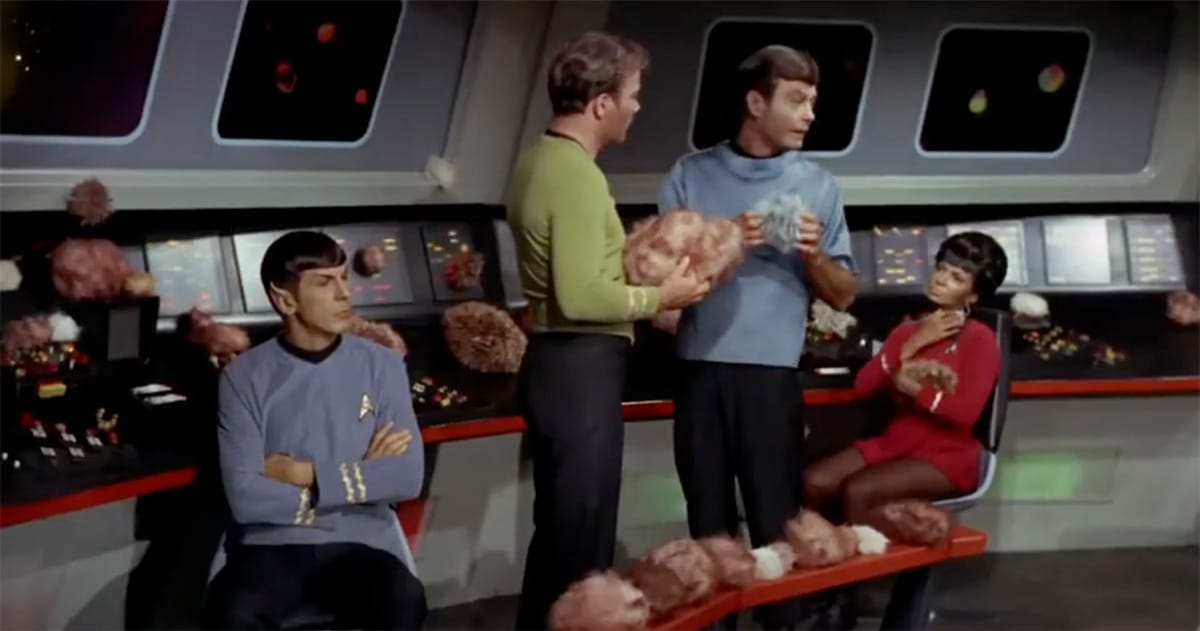
That rhythm is not an accident. The tribbles mock the pretense that leaders can control outcomes through perfect paperwork. They do not respect borders or protocols. They go where the food is and where the warmth is, and they do it faster than any memo can travel.
Gerrold’s script keeps the viewer choosing what to watch. On one level, the hour plays like a clean comedy about pest control in space. On another, it whispers about the limits of power when small problems grow unchecked. The point lands because no one stops to preach it.
The final reveal ties the strands together with neat economy. The grain, the mission, and the rival commanders all bend under the weight of a simple biological fact. The lesson is measured in ruined logistics and bruised pride. The laugh arrives right on time.
How a Pile of Fuzz Outsmarted Two Superpowers
The reason the episode endures goes beyond the charm of the prop room. It shows how science fiction can mirror real contests of will without turning didactic. It trusts the audience to connect the dots while it delivers honest fun. That trust keeps the hour fresh.
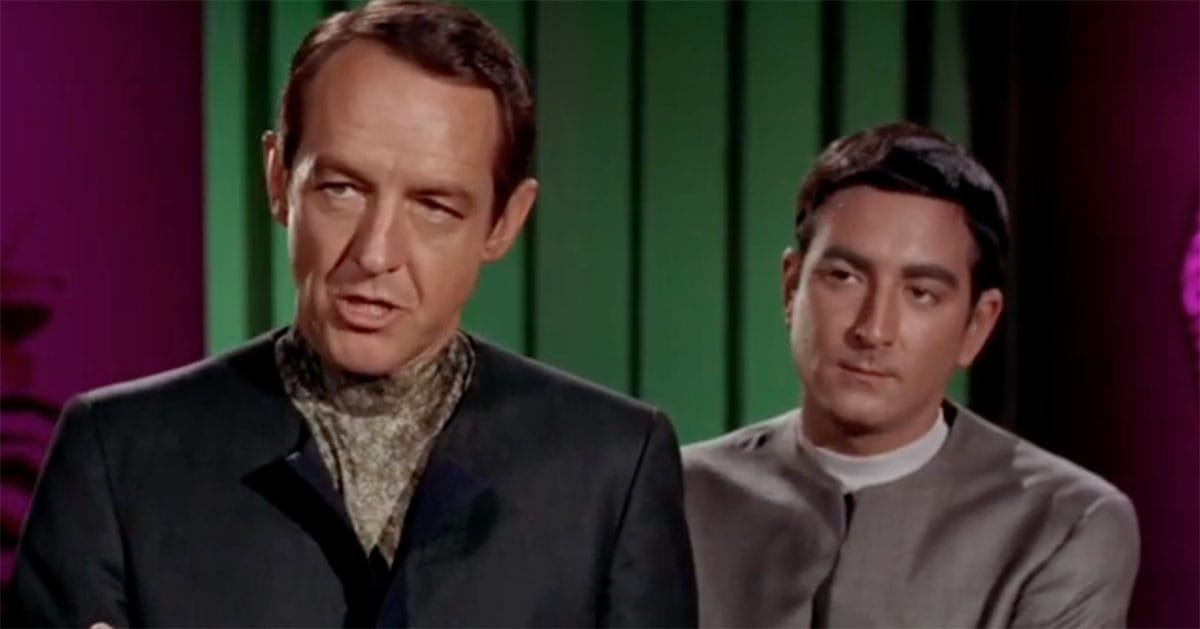
Many episodes tell you what to think. This one shows you people who think they are in control, while a smaller story steals the stage. The balance rewards repeat viewing for veterans and first‑timers alike. Each revisit reveals another tidy choice in structure and tone.
Its craft has shaped the franchise and the genre. Later shows borrow the trick of letting comedy smuggle in sharper ideas. They chase the same mix of brisk pacing, clean character beats, and grounded stakes. Few match the precision on display here.
In the end, the tribbles are the lasting memory and the key. They are the laugh and the warning. Ignore small things long enough, and they will run the whole show. That is the joke, and it is also the wisdom at the heart of “The Trouble with Tribbles.”

